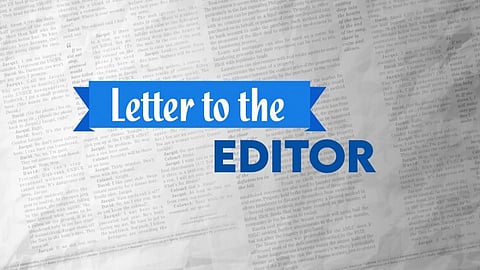
- NEWS
- the EDIT
- COMMENTARY
- BUSINESS
- LIFE
- SHOW
- ACTION
- GLOBAL GOALS
- SNAPS
- DYARYO TIRADA
- MORE

Dear Editor,
The ongoing saga of Apollo Quiboloy, founder of the Kingdom of Jesus Christ (KoJC), has taken another turn, as the highly anticipated Senate hearing on alleged human trafficking activities within KoJC was faced with a notable absence — that of Quiboloy himself.
This deliberate non-appearance leaves questions swirling — is it a calculated tactic to avoid scrutiny, or a display of impunity?
There is no doubt that Quiboloy faces serious charges, including human trafficking and child sexual abuse, and the Senate investigation, prompted by testimonies and evidence presented by former KoJC members, aims to determine if these accusations have merit.
Public anticipation for this hearing is high, fueled by the gravity of the allegations and the controversial figure at the center. However, Quiboloy’s absence sends a mixed message, one that could be interpreted in multiple ways.
On one hand, his non-appearance can be seen as a blatant disregard for the Senate’s authority and a show of defiance. By refusing to participate, Quiboloy avoids facing his accusers and potentially incriminating himself on a public platform. This tactic may be designed to stall the investigation, creating a perception of weakness in the Senate’s pursuit of justice.
Furthermore, Quiboloy’s past relationship with the previous administration raises concerns about potential political interference. His absence could be a calculated move to buy time and hope for a more favorable political landscape in the future.
Alternatively, Quiboloy’s camp may be arguing that legal issues surrounding the legitimacy of the Senate summons or the investigation itself necessitate his absence. However, such legal challenges should be addressed within the legal framework, not by simply shunning the Senate altogether.
Beyond the immediate implications, Quiboloy’s non-appearance reflects a larger societal issue — the potential for powerful individuals and entities to evade accountability. The Senate investigation aims to shed light on alleged abuses of power within KoJC, abuses that allegedly involved vulnerable individuals.
With this, the KoJC founder’s absence could discourage victims in similar situations from coming forward, fearing retaliation or a lack of a strong response from authorities.
The Senate is now at a critical juncture — it must demonstrate its commitment to upholding the law and ensuring that no individual, regardless of power or influence, is above the legal system. This may involve compelling Quiboloy’s attendance through the appropriate legal means.
Meantime, the Senate’s response will send a message to potential victims — that the Filipino justice system is not blind to accusations of abuse, even when leveled against powerful figures. A fair and thorough investigation, regardless of Quiboloy’s presence, is crucial for rebuilding public trust in the system.
However, the Senate’s efforts alone may not be enough. The media has a vital role to play in keeping the public informed about the investigation’s progress and ensuring transparency. Investigative journalists can delve deeper into the allegations, offering a more comprehensive picture of the situation.
Civil society organizations can also play a critical role by providing support to potential victims and advocating for fair and transparent legal proceedings. They can also pressure the Senate to continue the investigation regardless of Quiboloy’s presence, ensuring that the pursuit of justice is not hindered.
Ultimately, the Quiboloy saga has become a test case for Philippine society. Can the country break free from the culture of impunity and ensure that even the most powerful are held accountable for their actions?
The empty chair in the Senate chamber should not be mistaken for a lack of interest; it should be a catalyst for a renewed focus on ensuring justice for all.
Delma Malcontento delma_malcon1988@yahoo.com
